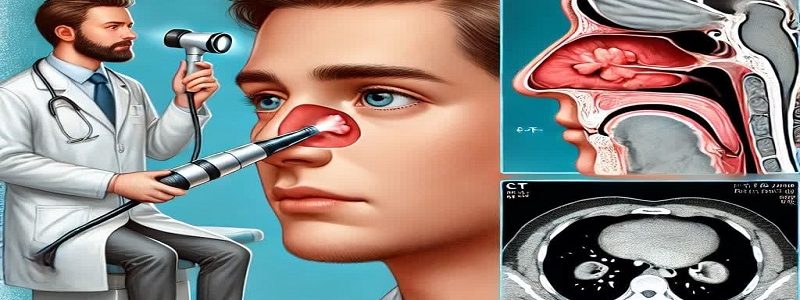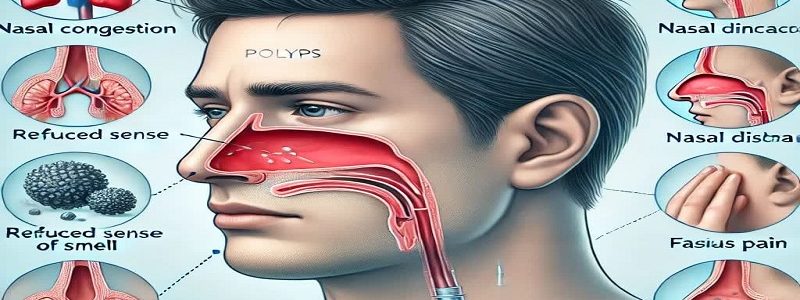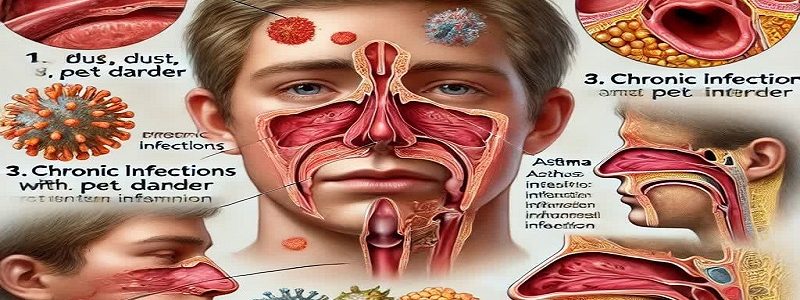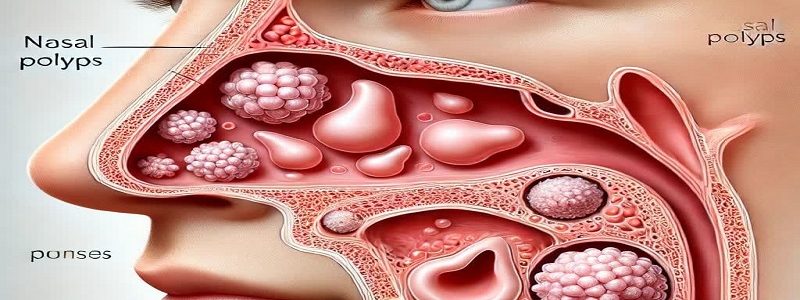Methods, benefits and challenges
Introduction
Nasal polyps are non -cancerous and soft appendages in the inner nose coating or sinuses, which are usually caused by chronic inflammation, allergies or recurrent infections.. These polyps can cause problems such as nasal congestion, decreased sense of smell, frequent sinus infections, and even sleep disorders.. Nasal polyps are treated to reduce inflammation, shrink or remove polyps and prevent them from recurring. In this article from the site of Dr. Behnam Khorrami (Isfahan nose surgeon _ Jaw surgeon of Isfahan), Various therapies, including medications, allergy and surgical treatments.
1.. Therapeutic therapy of nasal polyps
█▒.█▒. Topical corticosteroids
Topical steroid drugs such as nasal sprays the most common treatment Nasal polyps are. These drugs help reduce inflammation and shrink the polyps. Some common sprays include the following:
Fluticazone
┌ü┘ģž¬ž¦ž▓┘ł┘å
Buckmason
Buddhone
These drugs are usually recommended for long -term control and have little side effects, but overuse can stimulate the nose mucosa..
█▒.█▓. Oral corticosteroids
In more severe cases, doctors may prescribe oral steroids such as prednisolone to quickly reduce inflammation and shrink the polyps.. However, long -term use of these drugs can have side effects such as weight gain, hypertension and osteoporosis, so they should be used with caution..
█▒.█│. Biological drugs
In recent years, biological drugs such as dupillomab have been used to treat nasal polyps.. These drugs reduce the size of the polyps by inhibiting specific inflammatory pathways and improve the symptoms.. This treatment is usually recommended for patients who do not respond to other medications.
2.. Allergic treatments and controlling stimulant factors
█▓.█▒. Antihistamines and anti -allergic drugs
Since Allergies It can cause and aggravate nasal polyps, controlling allergens is an important part of treatment.. Antihistamine drugs such as lauratadine, faxofenadine, and strokes can help reduce inflammation. Also, in some cases, immunotherapy injection (Allergy vaccine) May be effective in reducing allergic reactions.
█▓.█▓. Saline
Using salt solutions for nasal washing can help drain secretions and reduce inflammation.. This simple but effective method, especially for patients suffering from chronic nasal cramps, is recommended..
█▓.█│. Avoiding stimulating factors
Some environmental factors such as cigarette smoke, air pollution and chemicals can aggravate inflammation. Therefore, patients with nasal polyps should avoid these factors as much as possible..
█│. Surgery to remove nasal polyps
█│.█▒. Polypectomy (Remove polyps with simple tools)
In cases where polyps are small and do not respond to medication, your doctor may use a simple method called polypectomy.. In this way, the doctor will remove the polyps from the nose using a special device. This procedure is usually done on an outpatient basis and the patient does not need to be hospitalized.
█│.█▓. Sinus endoscopy surgery (FESS)
For more severe cases where polyps are large and Sinus ducts Blocked, endoscopic sinus surgery (Functional Endoscopic Sinus Surgery – FESS) Done. In this way:
The surgeon of a narrow and equipped camera (Endoscope) Uses to observe intra -nose and sinuses.
Then, with special tools, it removes the polyps and blockers and opens the sinus..
This procedure is less aggressive than traditional surgeries and has a shorter recovery period.
█│.█│. Post-surgery care
After surgery, the use of nasal sprays, nasal washing with salt serum, and avoiding stimulant factors are recommended to prevent recurrence of polyps.. Also, regular medical visits are required to check the nose and sinuses..
4.. Prevention of nasal polyps recurrence
Even after successful treatment, nasal polyps may grow again. To reduce the risk of recurrence, it is recommended to observe the following points:
Continuous use of nasal steroid sprays to control inflammation
Daily rinse with salt serum
Control of allergies with appropriate medications or immunotherapy
Avoid irritating factors such as cigarette smoke and air pollution
Regular visit to a doctor to examine the state of the nose and sinuses

Conclusion
Nasal polyps can cause significant problems for patients, but fortunately there are several treatment options to control and treat the disease.. Pharmaceutical treatments such as steroid sprays and biological drugs are usually the first line of treatment, while surgery is used for more severe cases.. Controlling allergens and prevention of recurrence also plays an important role in managing the disease..
Useful links:
Isfahan nose surgeon _ Jaw surgeon of Isfahan
Dr. Behnam Khorrami's page in the clinic 24 | Maxillofacial surgeon in Isfahan clinic 24 | Nose surgeon in Isfahan clinic 24
Dr. Behnam Khorrami, nose surgeon in Isfahan at Dr. Af | Maxillofacial surgeon in Isfahan at Dr. Af | Isfahan nose surgeon at Dr. Af


















